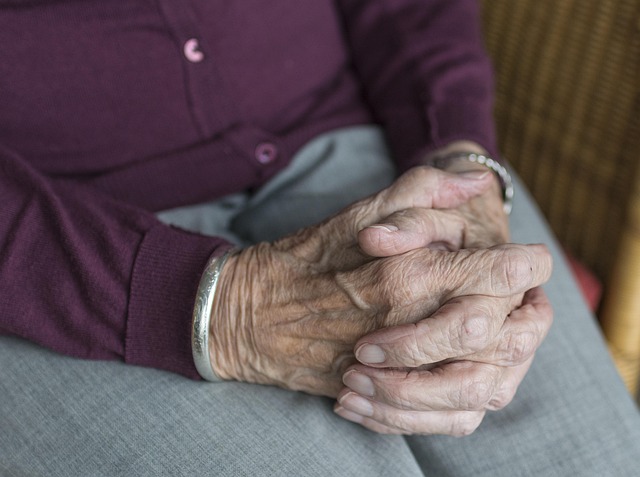Advance care planning, especially through creating a living will, is crucial for expressing end-of-life wishes and maintaining dignity during palliative or hospice care. This legal document allows individuals to specify medical treatment preferences, providing clarity for patients and their families. By outlining acceptable and refused treatments, including life-prolonging procedures, a living will empowers people to make informed choices while preserving autonomy and personal understanding of a good demise. Professional legal guidance ensures the document is legally sound and compliant with local regulations, ensuring medical providers can honor patient wishes for a dignified end-of-life experience.
“In a world where medical advancements offer extended lifespans, it’s crucial to prioritize end-of-life care according to personal wishes. This article explores the vital role of legal support in facilitating palliative and hospice care plans. We delve into advance care planning, clarifying the significance of a living will and its connection to these specialized services. Understanding legal requirements ensures your rights are protected, guiding healthcare professionals in honorifying your choices. By seeking professional legal counsel, individuals can navigate complex regulations, ensuring their end-of-life decisions are accurately implemented.”
- Understanding the Importance of Advance Care Planning
- What is a Living Will and How Does it Relate to Palliative and Hospice Care?
- Navigating Legal Requirements for Implementing Palliative and Hospice Wishes
- Ensuring Your Rights: Seeking Professional Legal Support for End-of-Life Decisions
Understanding the Importance of Advance Care Planning

Advance care planning is an essential aspect of ensuring your wishes regarding palliative and hospice care are respected. It involves making decisions about your healthcare future, especially when you might be unable to communicate or make choices for yourself. Creating a living will, a crucial document in advance care planning, allows individuals to specify their preferences for medical treatment, including the use of life-sustaining measures, during end-of-life scenarios.
This proactive step is vital as it provides clarity and peace of mind, both for the individual and their loved ones. By documenting your wishes, you can ensure that your values and goals are upheld, enabling a more comfortable and dignified transition during palliative or hospice care. It’s a powerful tool to take control and shape the end-of-life experience according to your understanding of what constitutes a good death.
What is a Living Will and How Does it Relate to Palliative and Hospice Care?

A Living Will is a crucial legal document that allows individuals to express their wishes regarding medical treatment, especially in situations where they may be unable to communicate or make decisions for themselves. It plays a significant role in palliative and hospice care by providing clarity and ensuring respect for an individual’s autonomy and preferences towards the end of life. This document outlines specific instructions on acceptability and refusal of medical treatments, including life-prolonging procedures, under various circumstances.
When discussing palliative and hospice care, a Living Will becomes essential as it clarifies one’s desires to receive or decline certain interventions. It empowers individuals to make informed choices about their care, ensuring that their wishes are followed even when they can no longer communicate directly. This is particularly relevant in end-of-life scenarios where advanced medical treatments might be suggested, and a Living Will acts as a guiding light, ensuring the patient’s dignity and compliance with their expressed preferences.
Navigating Legal Requirements for Implementing Palliative and Hospice Wishes

Navigating the legal requirements for implementing palliative and hospice care wishes can be a complex process, but it’s crucial for ensuring that an individual’s preferences are respected. The first step involves understanding the concept of a living will, which is a legal document that allows individuals to express their desires regarding medical treatment, including end-of-life care. A living will is particularly relevant when a person wants to ensure their wishes are known and followed, even if they become unable to communicate or make decisions for themselves.
In many jurisdictions, executing a living will is a straightforward process that requires signature from the individual and often witnesses. However, the legal framework surrounding palliative and hospice care can be intricate, especially when it involves advanced directives, power of attorney, and healthcare proxy. It’s essential for individuals and their families to consult with an attorney or healthcare professional who specializes in these areas to ensure compliance with local laws. This step is vital to guarantee that medical providers recognize and honor the patient’s autonomy and wishes, fostering a compassionate and dignified end-of-life journey.
Ensuring Your Rights: Seeking Professional Legal Support for End-of-Life Decisions

Ensuring your end-of-life wishes are respected is a crucial step in maintaining autonomy and dignity. One essential tool in this process is a living will, which allows you to document your preferences regarding medical treatments and care at the end of life. While many people may have basic ideas about their desires, translating these into legally binding documents requires professional guidance.
Seeking legal support ensures that your living will is crafted accurately and complies with local regulations. A qualified attorney specializing in healthcare law or estate planning can assist you in navigating complex legal frameworks, protecting your rights, and guaranteeing that your wishes are carried out as intended. This proactive step fosters peace of mind, knowing that your choices will be honored, and provides clarity for loved ones during an emotionally challenging time.
Advance care planning, including the creation of a living will, is a vital step in ensuring your end-of-life wishes are respected. Navigating the legal requirements can be complex, especially when it comes to palliative and hospice care. Seeking professional legal support ensures your rights are protected, providing peace of mind during an emotional time. By taking proactive measures, individuals can ensure their care aligns with their values, promoting a dignified and personalized end-of-life experience.
